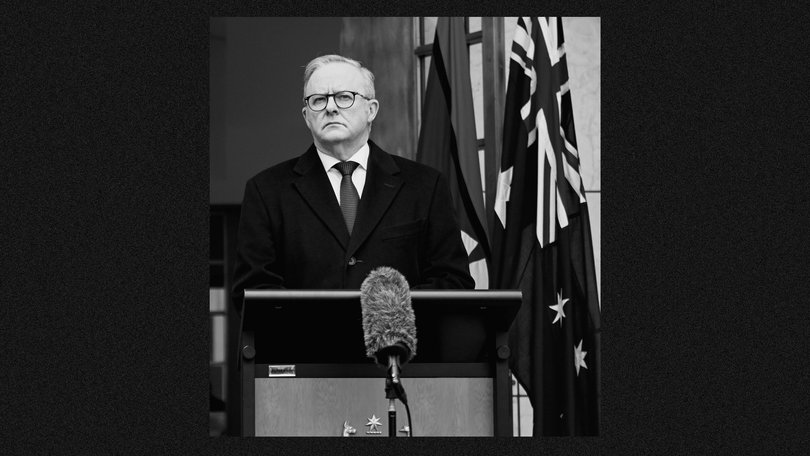DVIR ABRAMOVICH: Peace by proclamation? The risks of Australia’s Palestinian statehood move
DVIR ABRAMOVICH: Australia’s recognition of a Palestinian state may feel right, but it could make peace harder to reach.

In November 1988, Yasser Arafat stood before the Palestine National Council in Algiers and read out a unilateral declaration of independence.
It was meant to be a turning point, a way of bypassing the frozen negotiation track, of forcing the world to acknowledge Palestinian statehood by sheer assertion. More than 90 countries quickly recognised the new “State of Palestine”.
And yet nothing on the ground changed. The United States withheld recognition. The First Intifada raged on. The declaration became a historical footnote, a reminder that, in the Middle East, recognition untethered from reality is not a shortcut to peace but an exercise in political theatre.
Sign up to The Nightly's newsletters.
Get the first look at the digital newspaper, curated daily stories and breaking headlines delivered to your inbox.
By continuing you agree to our Terms and Privacy Policy.Australia’s decision on Monday risks joining that footnote.
It is tempting to believe that the right gesture, at the right moment, can change the course of history. We’ve seen leaders summon courage in a single speech or sign their name to a document that seemed to redraw the moral map of the world.
But symbolism is a dangerous drug. It can make us feel virtuous without making anything better. It can even make things worse.
That is the danger in recognising a Palestinian state now. It feels righteous. It sounds like momentum. It offers the satisfaction of aligning oneself with “peace” at a time when Gaza is a synonym for human suffering.
But timing matters in diplomacy as much as it does in love, and right now, this move risks locking the conflict into its ugliest shape.
For decades, the bipartisan understanding in Canberra, shared with Washington, London, and even many in the Arab world, was that recognition should come at the end of a peace process, not in the middle of a war.
Recognition was meant to be the final act in a long and bitter negotiation, the prize you grant once both sides have laid down their grievances, accepted each other’s legitimacy, and made compromises that cost them politically. You didn’t hand it out early because that made the hard compromises less likely to happen at all.
And this is not an ordinary moment. Hamas still governs Gaza. The tunnels still hold hostages from October 7, a day that saw the most lethal assault on Jews since the Holocaust. The group’s leaders have made clear they would repeat those massacres as often as they could.
However well-meaning the intention, recognising a Palestinian state now tells the most cynical actors in the region that violence can shift the political map. It elevates Hamas in the eyes of its own people, not because Australia says so explicitly, but because that is how the timing will be read.
It also sends a perilous message to moderates on both sides. Palestinian leaders who have rejected or walked away from multiple offers of statehood — in 2000, 2001, 2008, and 2014 — can now see that they need not make painful concessions to reap the diplomatic rewards.
In the West Bank, the Palestinian Authority has refused to re-enter negotiations since 2014, investing instead in a strategy of internationalising the conflict through bodies like the United Nations.
Recognition given under these circumstances doesn’t just bypass talks; it rewards the decision to avoid them. It tells leaders that hardline tactics, not compromise, are the shortest path to their goals.
Nor is there, at present, a Palestinian state to recognise in any meaningful sense. The Palestinian Authority in the West Bank is weak, corrupt, and unelected since 2006. Hamas has ruled Gaza as an armed theocracy for 17 years.
The two factions have been locked in a civil schism since 2007, and no serious plan exists for uniting them under a single, accountable government. If you believe in the Montevideo criteria for statehood, which are defined territory, a permanent population, and a government capable of governing, you have to admit that Palestine doesn’t meet them yet.
And then there is the matter of alliances. The US has made clear it opposes this recognition now. Washington’s reasoning is not born of indifference to Palestinian suffering; it’s grounded in a conviction that you can’t abandon the framework of negotiated settlement in one conflict without weakening it everywhere.
We live in an age when Russia redraws borders by force and China toys with doing the same. If the West disregards its own rules when they feel inconvenient, we erode the very norms we depend on to protect ourselves.
What is the alternative? Not complacency. Not the weary shrug that accepts permanent stalemate as inevitable.
The alternative is to press for the conditions that make recognition more than a flourish: the disarmament of terror groups, the reform of Palestinian governance, a credible plan to reunite Gaza and the West Bank under legitimate authority and guarantees that any Israeli withdrawal will not produce another Gaza.
These are not easy conditions to meet. They may take years. But if we care about the lives on both sides of this conflict, and not just about the moral performance of our own politics, then we have to do the work in the right order.
Peace is not a mood you declare; it is a structure you build. And like all structures that matter, it cannot stand unless its foundations are solid.
Australia wants to be on the side of hope. That’s an honourable impulse. But hope that is not anchored in reality, is just sentiment. The cruel truth is that this gesture, offered now, risks making a just peace more distant, not closer. And in the Middle East, gestures without ground are not harmless; they can be the very things that keep the ground from ever settling.
Dr Dvir Abramovich is the chairman of the Anti-Defamation Commission
